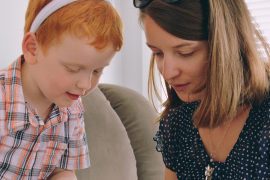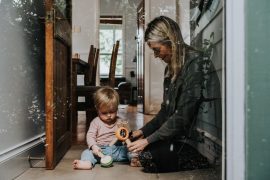3 – Communication:
If you have spoken to a teenager lately (I mean actually in person and not via an electronic device) you will see the effects of the generation of children who rely on screen time as their main source of communication, connections and information. While it is now normal that most people live their lives this way, it doesn’t mean it’s right, or even that it’s healthy.
The main source of communication, connection and information SHOULD come from real people in the real world. This is how children learn about relationships, love, kindness, compassion, body language, eye contact, manners and so much more.
Screen has its place, but should be limited to around three to four 30-minute slots of screen time a week. The rest of the time they are busy being the kids they were born to be, wild and free.
If you want to grow mentally, emotionally and physically healthy children into well-adjusted REAL adults, screen time needs to be used sparingly. Once they leave our homes and go out into the world then it is out of our hands, but while they are living under our roof it is our responsibility to reduce the amount of screen they have, and in turn we give them the gifts of imagination, creativity and holistic wellness. And you should never feel guilty for wanting that for your kids, so never feel guilty for turning off the screens, unplugging, and restricting screen time.
Jamie Geurtjens is a freelance writer from NZ, author of ‘The Chemical Generation’, mother of 2, is a former Waldorf head teacher, and has a BA in Education, (early Years) from Massey University. She also founded the NZ organic skincare compnay ‘Clean Green Skincare’. You can find more from Jamie at her at her Website.










